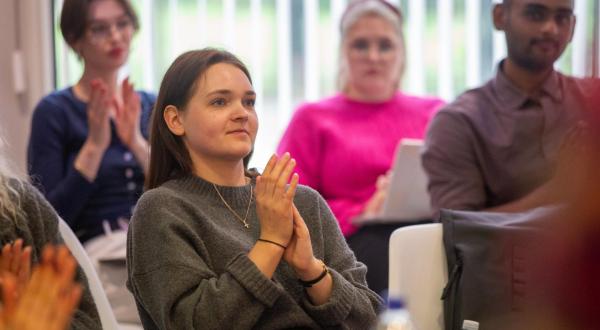Medical studies with global value! RSU is in the process of accreditation with an agency recognized by the World Federation for Medical Education
The Medicine programme at Rīga Stradiņš University (RSU) is in the process of accreditation with an agency recognized by the World Federation for Medical Education (WFME). This process is not a formality, but rather a strategic initiative that confirms the work of RSU in ensuring the highest quality standards of medical studies and strengthening its position in the international education space. We talk to Prof. Ingus Skadiņš, Associate Dean of the Faculty of Medicine and Director of the Medical Programme, about the accreditation process.
Where are we in the accreditation process?
We have coordinated all the necessary documentation for the self-evaluation report with the Council of the Faculty of Medicine, the Rector's Office, the Council of Deans and the Senate. It contains detailed information on the mission, content, admission procedures, teaching and assessment approaches and student support mechanisms. It assesses the academic staff, teaching resources and infrastructure, quality assurance systems, governance structure and access to public information.
The English language version of the documents is currently being checked. We plan to submit them to the German agency (The Accreditation Agency for Health and Social Sciences) immediately after the May holidays.
If everything goes according to plan, we can expect a first reply, possibly with clarification questions, at the end of May or June. In October, the experts will visit RSU to get acquainted with the infrastructure, staff, students and administration.
How long will it take to bring the whole process to a successful conclusion?
The contract with the Agency states that it can take up to 12 months from the moment the documents are submitted to the final decision. Of course, it could be sooner, perhaps even early next year.
If everything goes well, we will be the first university in Latvia with this kind of international assessment.
How did you come up with the idea of accreditation?
We have been thinking about it for five or six years. Actually, the initiative came largely from our international students. They are looking for opportunities to use their education more widely after their studies, working in different medical institutions around the world. Without this accreditation, many good applicants choose not to study at RSU because they need this international recognition for their later work.
Accreditation will give our graduates an extra stamp of quality and open up many more opportunities, both professionally and academically.
Will both international and Latvian students benefit?
Definitely. Local graduates also sometimes go to work in the US or other countries. This accreditation will open up more opportunities for them outside Europe. There are also various restrictions in European countries, and this quality seal reduces these barriers. It is also further proof that our programme meets the highest standards of education worldwide.
This accreditation process also creates new opportunities for RSU's academic staff. It promotes pedagogical quality, fosters a common approach to teaching courses and provides a stable framework for professional development.
The accreditation opens the door to closer international cooperation and strengthens the University's position as a regional leader in medical education.
The accreditation also becomes a clear confirmation that the University has a consistent quality management policy.
Is the accreditation process a team effort?
Although I manage the process, it certainly could not be done alone, especially in such a short time. Since the beginning of January, we have worked as a team. Many thanks to Simona Semjonova, Dagnija Briede and Matīss Sīlis. I am very grateful to them.
Related news
 18 Student teams to start developing their ideas in B-Space incubation programmeFor RSU Employees, For Students, Innovation, B-Space
18 Student teams to start developing their ideas in B-Space incubation programmeFor RSU Employees, For Students, Innovation, B-Space


